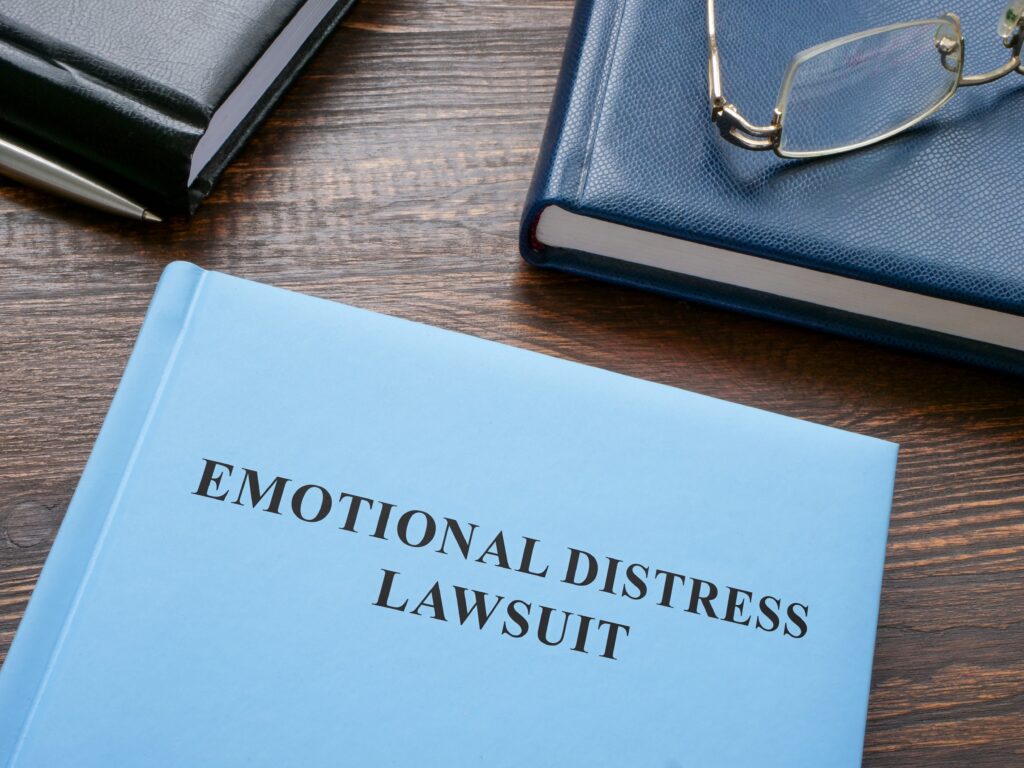Can You Sue for Emotional Distress After a Car Accident in Texas?
Car accidents often come with a lot of damage. Typically when thinking about the damage associated with car accidents, many people think of physical damage like injuries or car damage. However, this isn’t the only kind of damage that comes with these types of accidents. Car accidents can be a very traumatic experience, which often comes with emotional distress. Emotional distress claims can provide financial relief for individuals suffering from the psychological aftermath of car accidents. In this blog, we will be covering the bases for suing for emotional distress after a car accident in Texas to help individuals involved in this situation understand their options.
What is Emotional Distress?
Emotional distress is the mental or psychological impact on an individual due to a traumatic event. Some people may experience conditions such as anxiety, depression, grief, and insomnia, which can impair their quality of life. The unpredictability and suddenness of a car accident can lead to emotional suffering for individuals long after the fact of the accident. After being in a car accident, people may experience anxiety about driving again, in fear an accident may occur. This can lead to lifestyle changes and an overall reduction in quality of life.
Legal Grounds for Emotional Distress Claims in Texas
Texas law has specific guidelines for when and how emotional distress can be compensated. The state follows a fault-based system for personal injury cases, meaning that the party responsible for causing harm is liable for damages. This includes compensation for economic and non-economic damages, with emotional distress falling into the non-economic category.
In Texas, victims of car accidents may seek compensation for emotional distress if they can prove that the defendant’s actions directly caused their suffering. However, Texas also follows a comparative fault rule, which means that if a victim is partially responsible for the accident, their compensation may be reduced by their percentage of fault. If the victim is more than 50% at fault, they are typically unable to gain any compensation. Proving emotional distress in a car accident claim involves proving that the defendant’s actions caused emotional suffering.
Evidence Needed to Sue for Emotional Distress
Proving emotional distress in Texas involves a few key factors:

- The defendant owed a duty of care to the plaintiff: This is typically the general duty to avoid harm to individuals on the road.
- The defendant breached that duty: The breach might be through negligence or intentional harm on the road.
- Causation: The plaintiff must prove that the defendant’s actions directly caused their emotional distress.
- Severity of emotional distress: The distress must be severe enough to be quantifiable and result in significant emotional or psychological suffering. Mild or temporary emotional discomfort is typically not enough to support a claim.
Compensation for Emotional Distress
If you present a successful emotional distress claim, there are various types of compensation that you may be awarded. The compensation given in these claims is meant to compensate the individual for the losses they suffered from the emotional distress. Some examples include medical expenses like therapy, lost wages, and general pain and suffering. The amount given in these instances varies on the severity, duration, and evidence of the emotional distress. The more severe and longer the duration, the more compensation. Additionally, detailed and strong evidence can also lead to higher amounts of compensation.
Seek Out The Compensation You Deserve
While less recognized, emotional distress is a type of damage that can come with experiencing a car accident. It is important to be aware of the legal grounds for these kinds of claims and the factors influencing compensation. If you experience a car accident in Texas, you are entitled to seek the compensation you deserve.
If you or a loved one has experienced emotional distress following a car accident, consulting with a legal professional is extremely helpful. A personal injury attorney can provide guidance tailored to your unique situation, helping you understand your rights and the best course of action. The Law Office of Sandy McCorquodale P.C. stands ready to fight with you. Contact us today for a consultation on your emotional distress claim.
